CAMILLE PISSARRO (1830-1903)
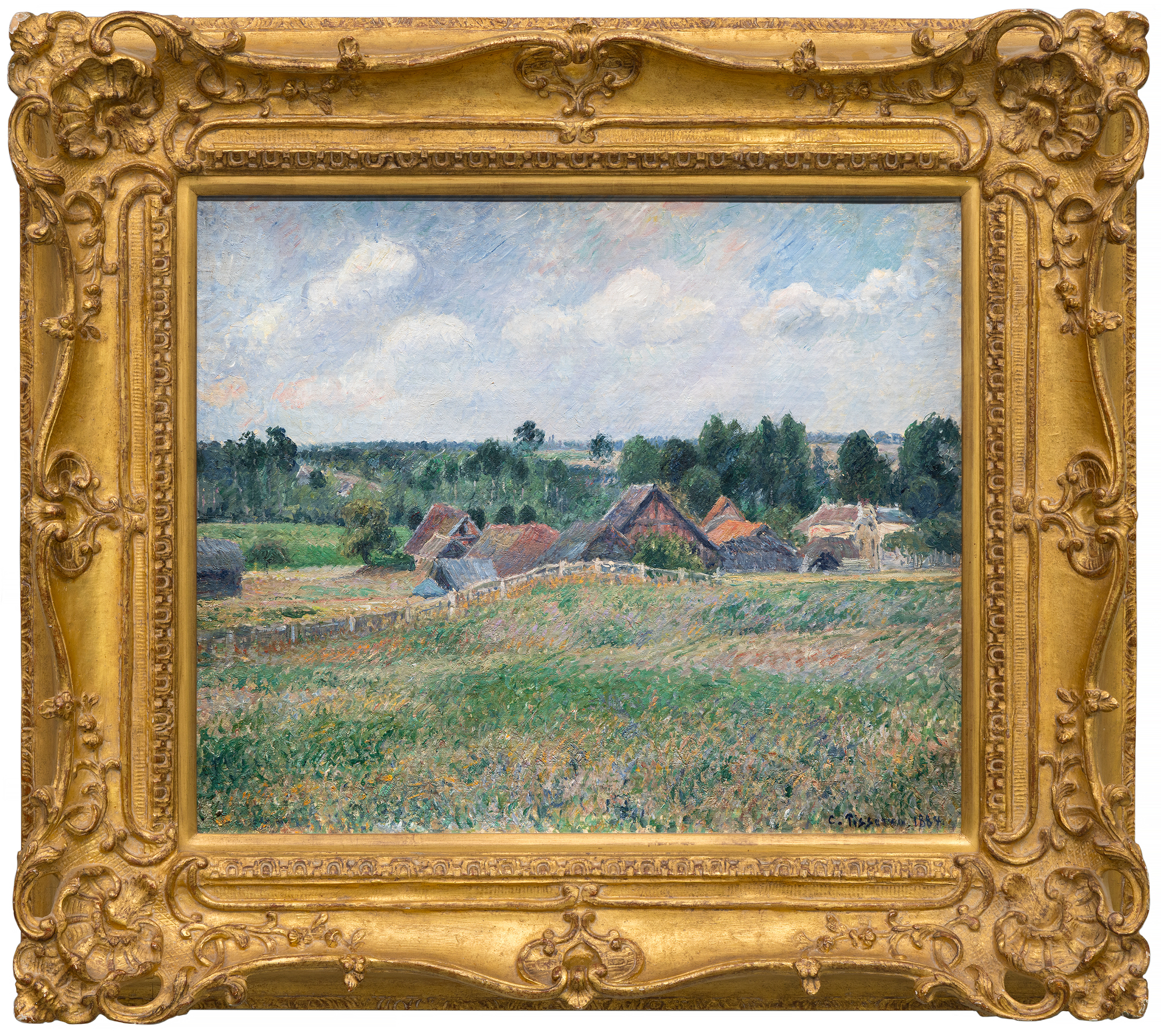
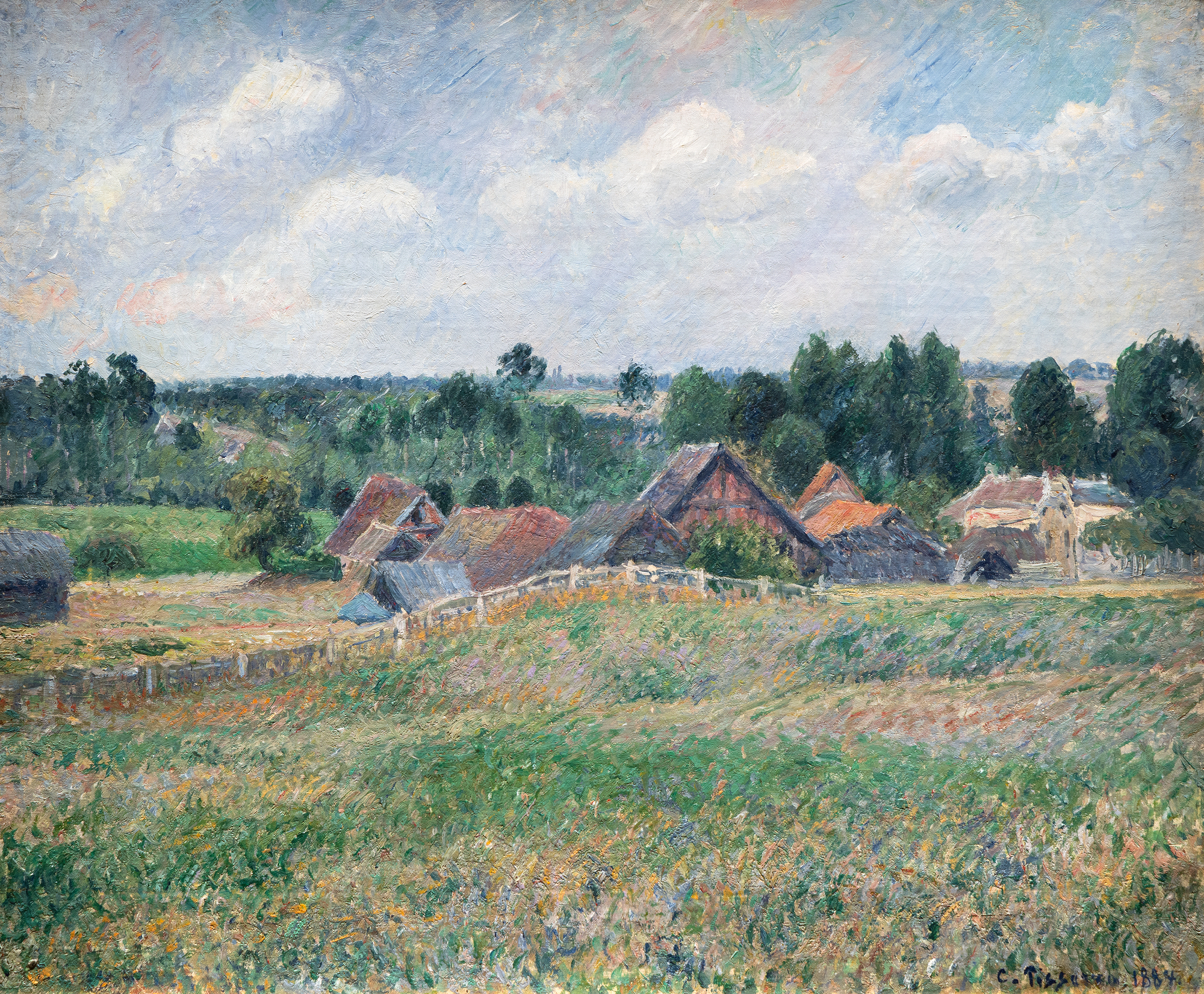
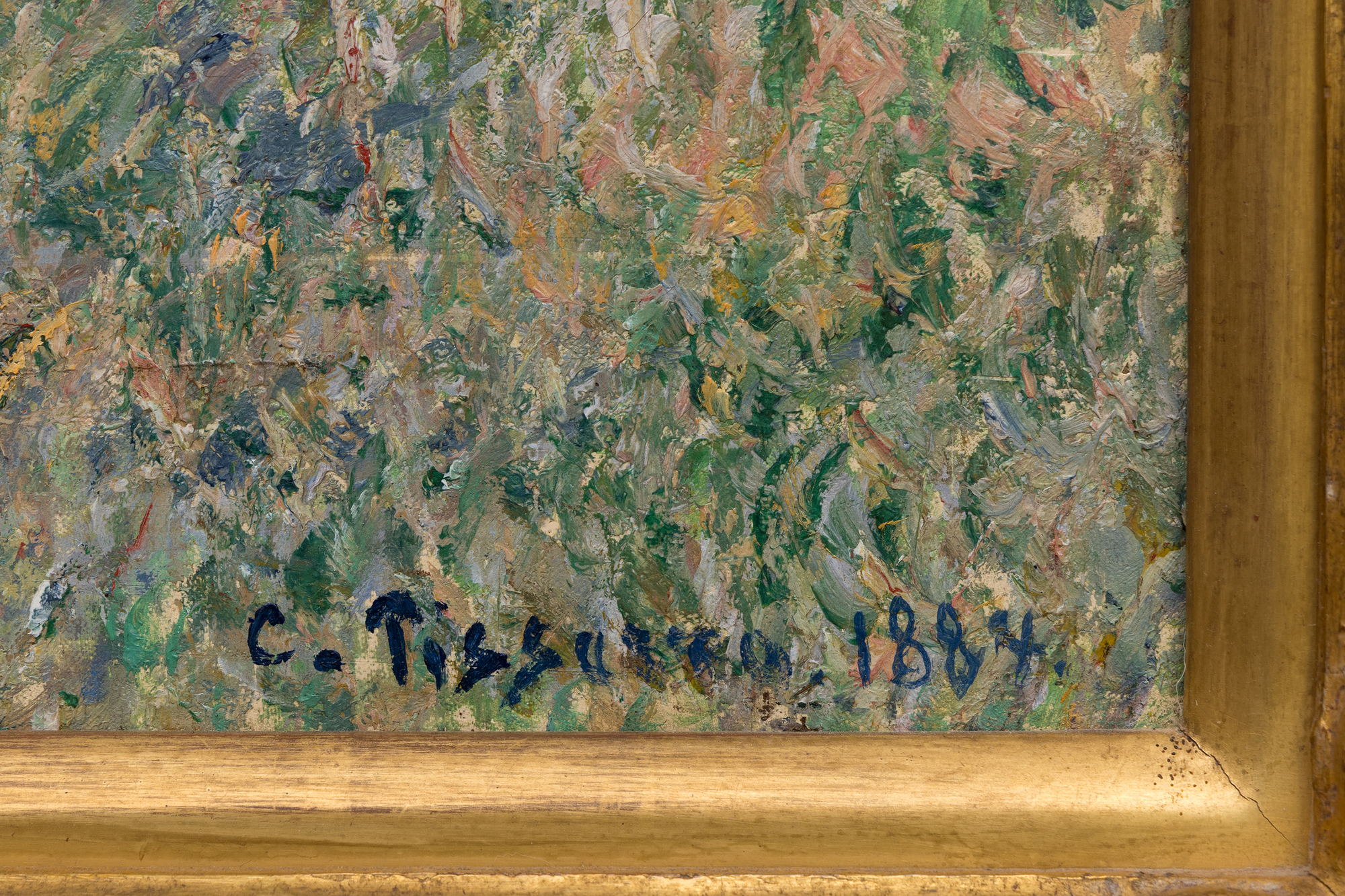
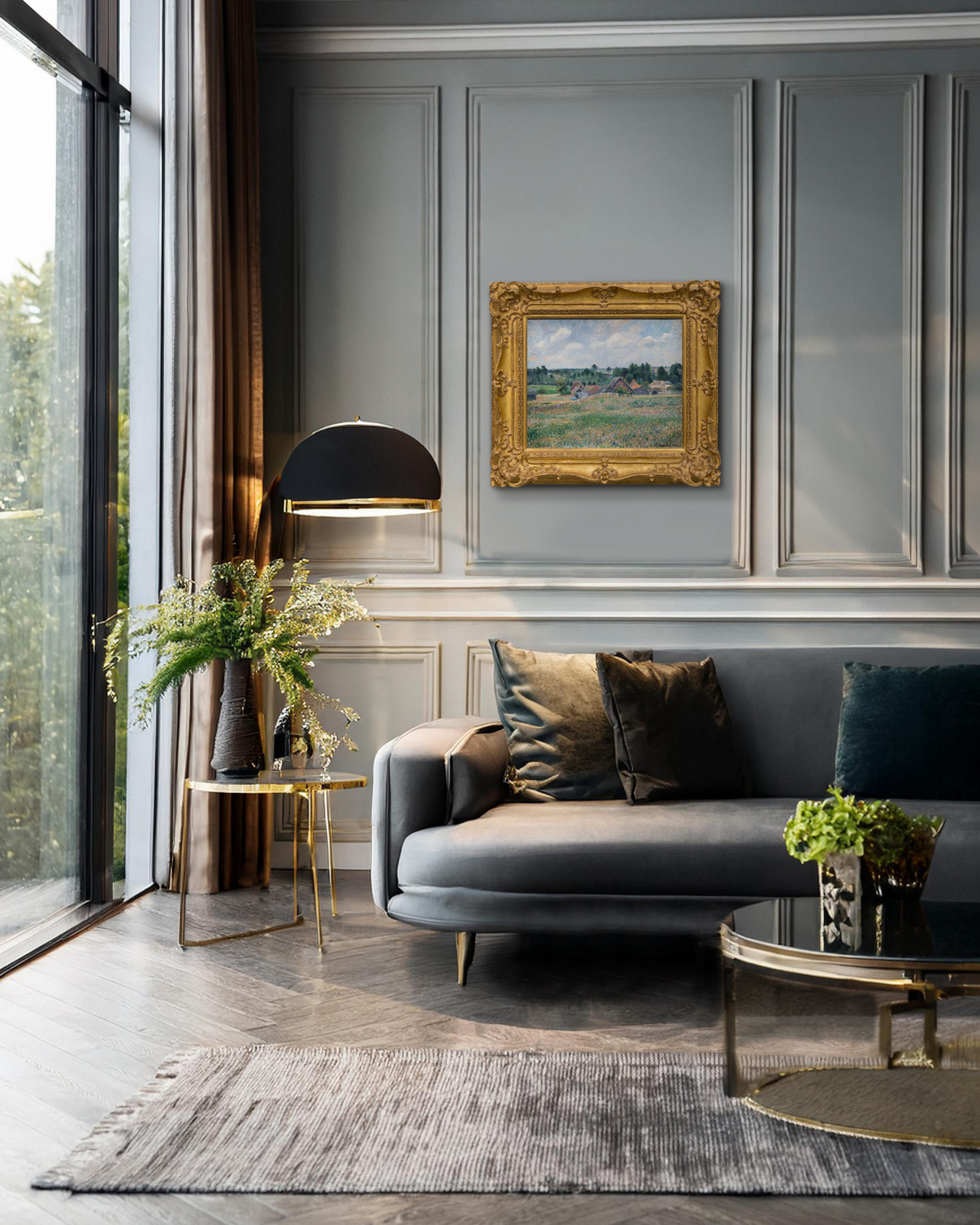
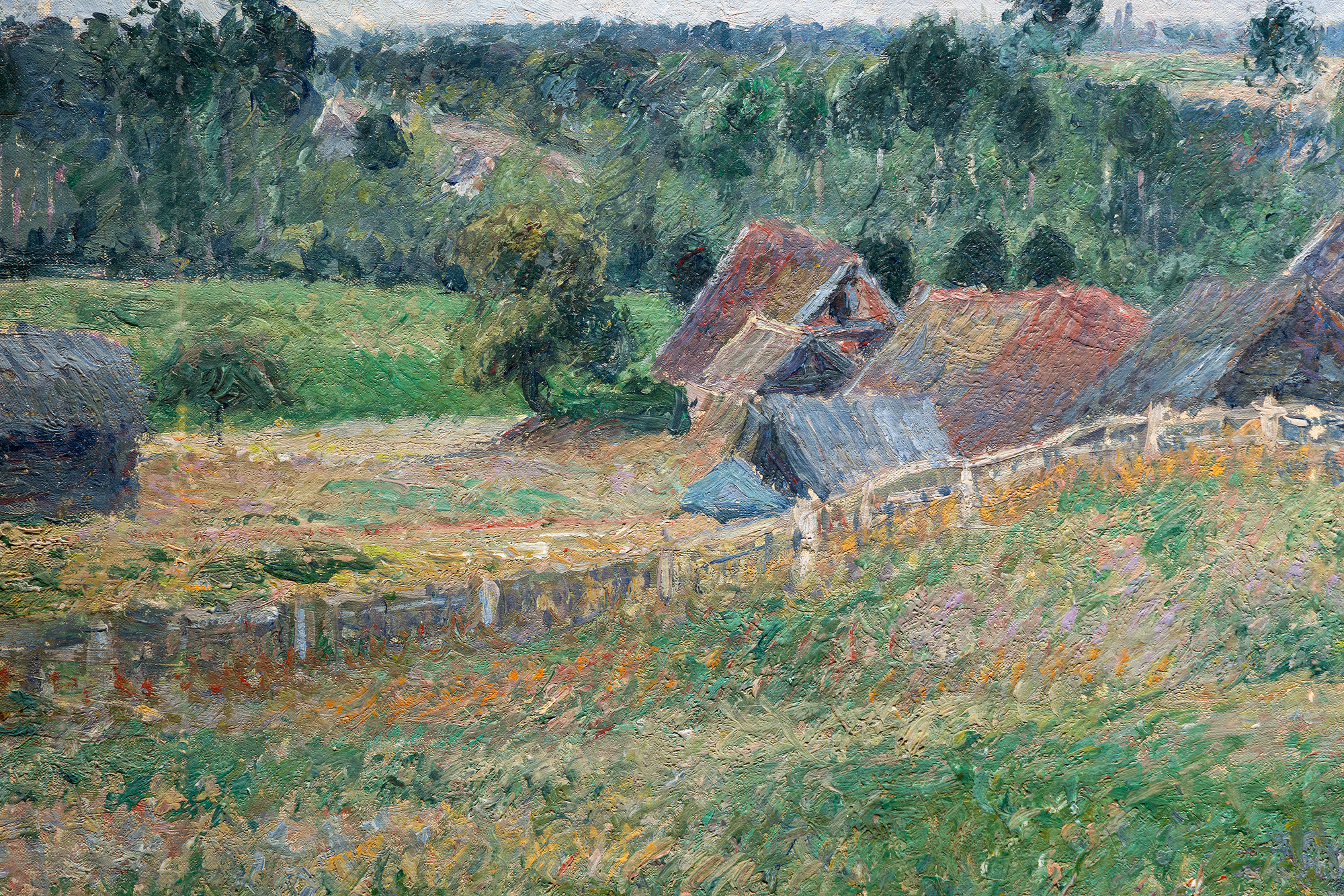

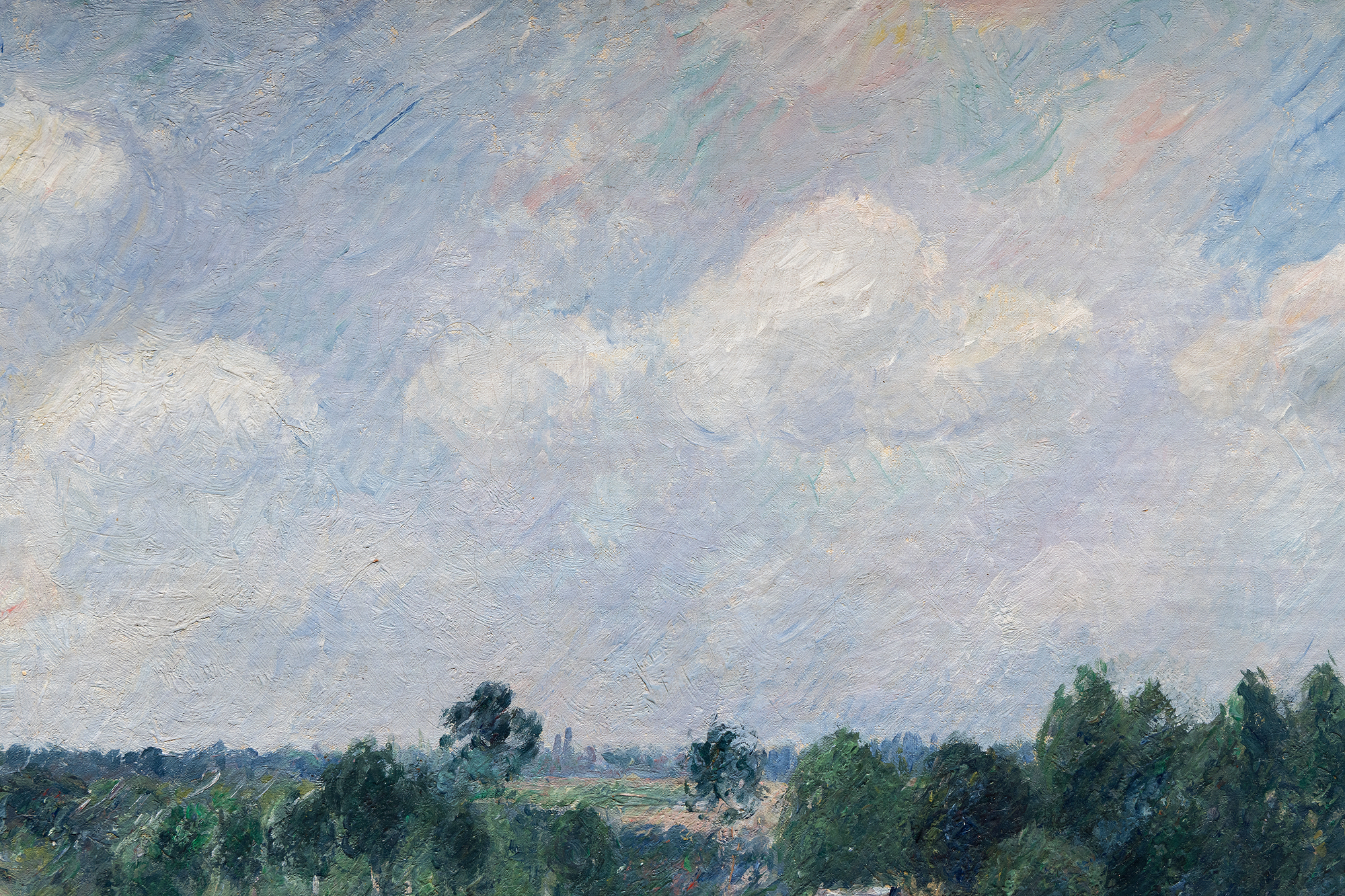
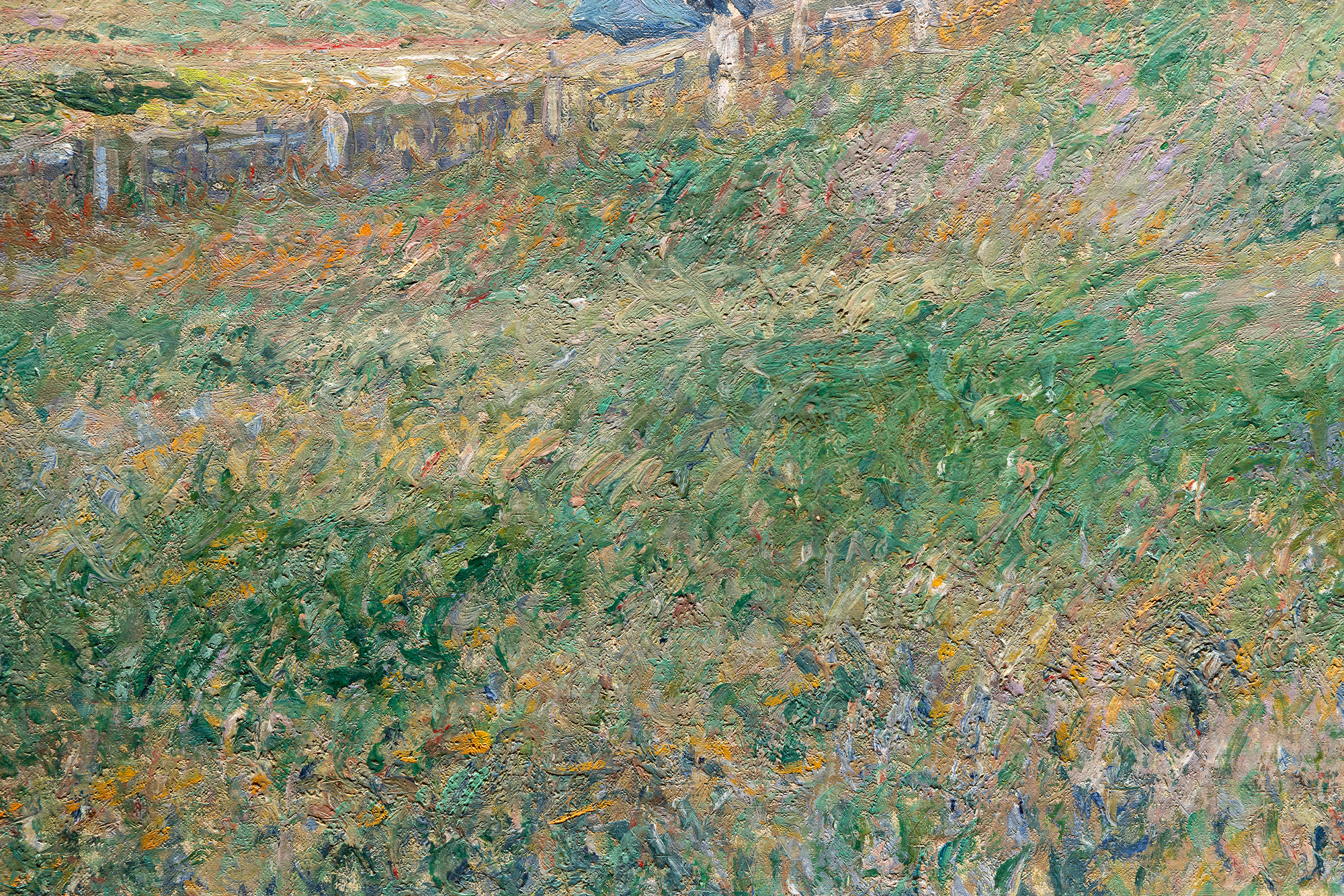
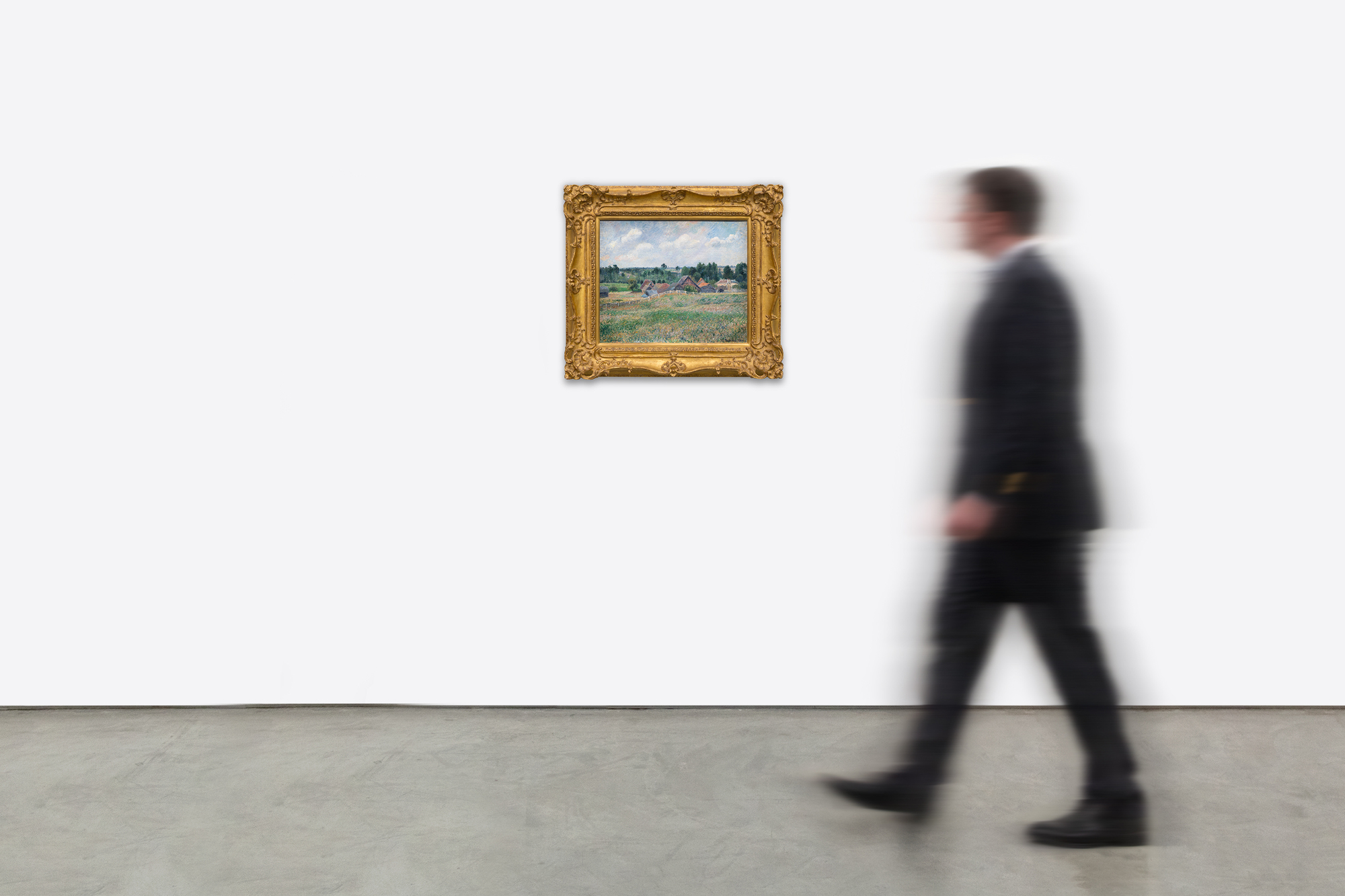
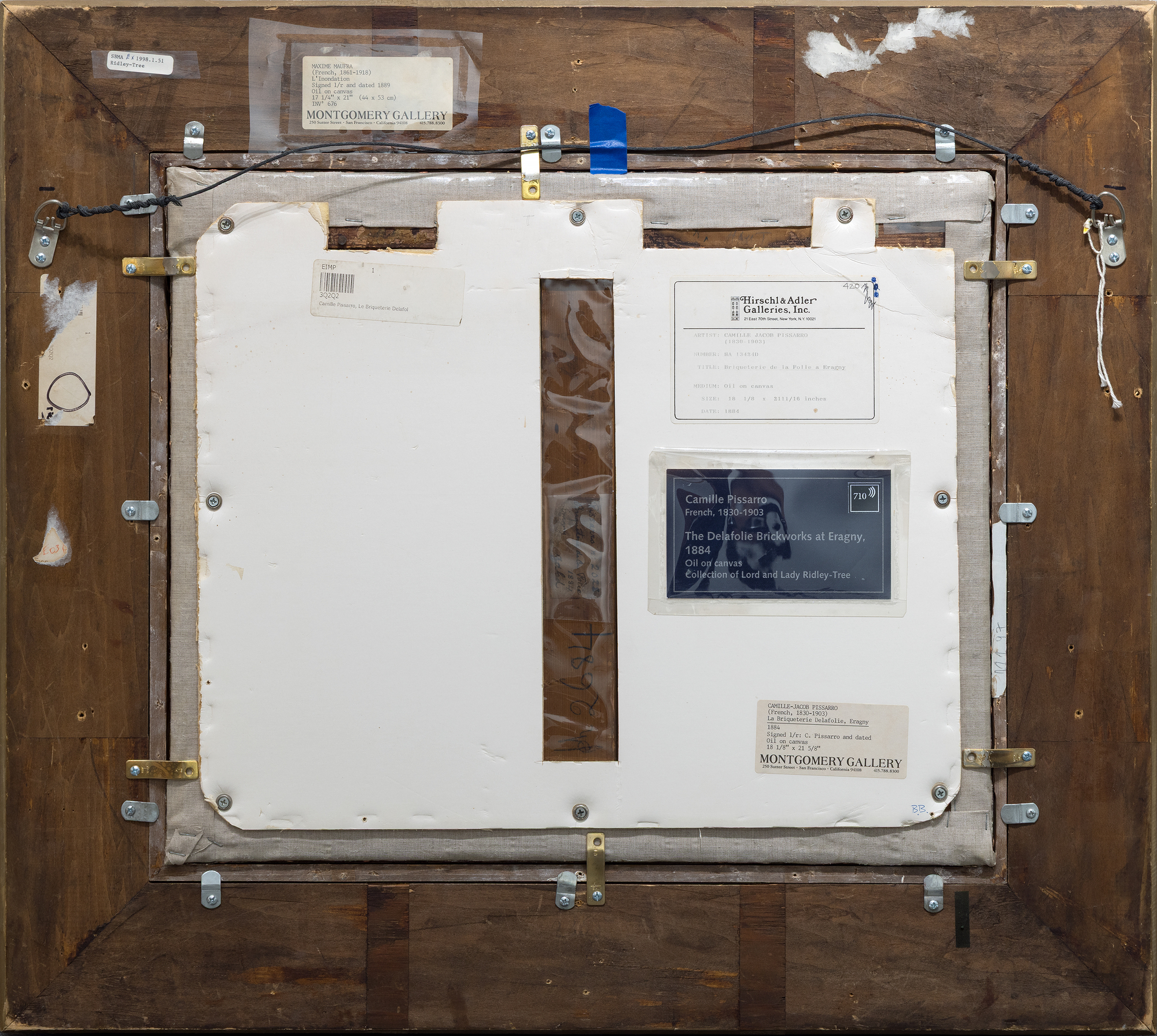
Provenance
Durand-Ruel, Paris, acquired from the artist, 1892Werner Herold, Zurich, acquired from the above in 1917
Thence by descent until 1991
Montgomery Gallery, San Francisco (on consignment)
Hirschl & Adler Galleries, New York
Private Collection, New York, 1994
Lord and Lady Ridley Tree, Santa Barbara, California
Private Collection
Exhibition
Paris, France, Galerie Durand-Ruel, Camille Pissarro, 1892, no. 30Warsaw, Poland, Towarzstwo, Zachety Sztuk Pieknuch w Krolestwie Polskiem, Wystawa Dziel Artystow Francusk...More...ich, 1911, no. 114
Zurich, Switzerland, Kunsthaus, L'Art française des XIXe et Xxe siècles, 1917, no. 152
Paris, France, Gazette des Beaux-Arts, La Peinture française du XIX siècle en Suisse, 1938, no. 76
Brussels, Belgium, Palais des Beaux-Arts, De David à Cézanne, 1947-48, no. 108
Santa Barbara, California, Santa Barbara Museum of Art, Santa Barbara Collects: Impressions of France, 1998, no. 51
Literature
Alfred Ernst, "Camille Pissarro," La Paix, Paris, February 1892, p. 2Janine Bailley-Herzberg, Correspondance de Camille Pissarro, vol. III, Paris, 1988, letter no. 734, p. 171, no. 5
Ludovic-Rodo Pissarro and Lionello Venturi, Camille Pissarro: son art, son oeuvre, vol. I Paris, 1939, No. 681, p. 177; vol. II, no. 681, pl. 141
Eric Zafran, Santa Barbara Collects: Impressions of France, Santa Barbara, CA, 1988, no. 51, illustrated
Joachim Pissarro and Claire Durand-Ruel Snollaerts, Pissarro, Critical Catalogue of Paintings, vol. III, Paris, 2005, no. 776, illustrated p. 514
...LESS... Price1,900,000
The foreground features a polychrome meadow. The staccato green, ochre, and lilac brushstrokes in all directions convey the wind’s gentle movement through the field beneath a fleecy sky. In the distance, the Delafolie brickyard emerges, owned by Pissarro’s good friend and neighbor. The catalogue raisonné notes:
“The Delafolie brickyard at Éragny, refers to a local family-owned and operated brickyard. Mr. Delafolie wasn’t just a bricklayer—he was Pissarro’s neighbor and brewed his own cider. His cider was reportedly so good that Claude Monet once wrote to Pissarro asking who the merchant was and how he could order a keg for himself. Pissarro and Mr. Delafolie were good friends, and Pissarro often took advantage of Mr. Delafolie’s regular deliveries to Paris and Gisors to ship his paintings along with the bricks.”
Similar works reside in the Musée d’Orsay, the Walters Art Museum, and the Birmingham Museum of Art. This painting offers collectors a rare, well-traveled piece, embodying Pissarro’s intimate connection to Éragny’s landscape and community.


